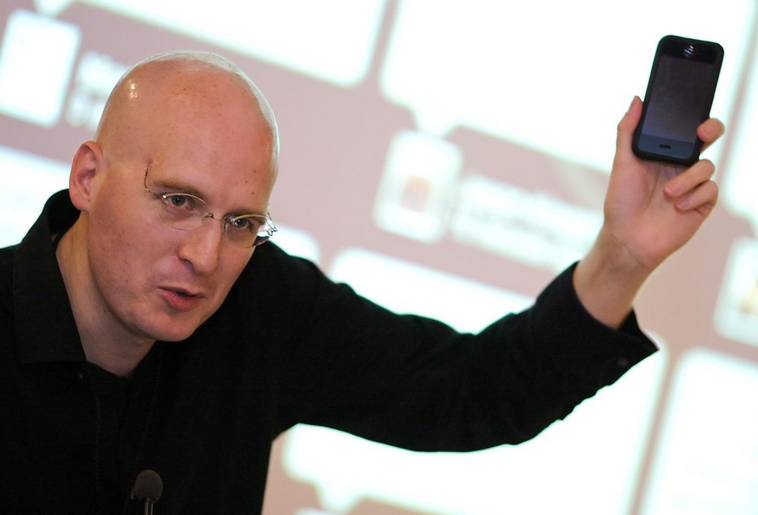Microsoft's HoloLens big for business? Object Theory thinks so

Will Microsoft HoloLens develop enough business technology momentum to support an app ecosystem and lure enough game developers to enterprise software? A newly launched company called Object Theory is betting its future on it.
HoloLens, Microsoft's entry into augmented reality applications, has been seen in a series of demonstrations in recent months. Microsoft's plan is to build augmented reality hooks into Windows 10 and leverage its developer ecosystem.
And while HoloLens is initially viewed as an entertainment and gaming device, Microsoft has made it clear that there are plenty of business uses ranging from engineering to collaboration to training. Minecraft may capture the buzz for HoloLens, but the money is likely to come from enterprise use.
Object Theory, based in Portland, is getting on the HoloLens business bandwagon early.
The company is self funded by its two founders. Raven Zachary founded iPhoneDevCamp in 2007, was director of the Obama '08 iPhone app, and formed Small Society, a mobile app development company sold to Walmart in 2012. Michael Hoffman, Object Theory's other founder, was the engineering lead for Microsoft's HoloLens and worked on the NASA Mars demo as well as other partnerships.
More on HoloLens: NASA to give Microsoft's HoloLens a spin in space | Microsoft's HoloLens: Wooing developers will be everything | Microsoft reveals more on HoloLens hardware, gets 3D print boost from AutoDesk | Microsoft's HoloLens: Enterprise boon or boondoggle? TechRepublic: The state of virtual reality content: What the industry is doing to create compelling experiences | 10 ways virtual reality is revolutionizing medicine and healthcare
Object Theory is part integrator, part development company and part services firm. Enterprise applications from HoloLens will be focused on specific industries and come with a unique interface.The bet from Zachary and Hoffman is that augmented reality applications are akin to the mobile app space in 2008.
We caught up with Zachary and Hoffman to talk about the business potential for HoloLens.
Will HoloLens have business chops?
Zachary: "When you look at this space---augmented reality---you see real-world examples of how the 3D environment can help business. We've seen examples of both consumer and business side of the market."
Hoffman: "We're finally getting to point where limitations aren't hindering augmented reality. There is more evidence that HoloLens can be for business first over consumer. There are enterprise scenarios where the current state of technology solves real world problems."
Zachary: "As a species, humans have been using 2D interfaces for two or three generations. We've been manipulating 3D objects in a depth environment for as long as we've been an identifiable species. When we can layer the digital world atop the physical world, I believe that physical interactions we are familiar with and interacting with digital objects are going to be a more natural model for interfaces. 2D information isn't going away, though. We write and read on 2D paper, and did so well before computers existed. I think you will see a shift away from 2D interfaces for controlling and interacting with the digital world, and a mixture of 2D and 3D digital projections into the physical world."
Did Microsoft nudge you to create Object Theory?
Hoffman: "We were excited enough about the opportunity before. The biggest advantage I had was being at Microsoft and seeing the value. It gives me tremendous confidence. Companies are also approaching us because they saw the value. This industry has been in development for at least a decade. Time to build a real business around it."
The model
Zachary: "What we saw is that this market is different than the app economy. There's going to be a systems integrator angle to this. It's not like mobile where you paid for app and that was it. There is going to be much more hand holding and the business side is going to need something more like an integrator with a development piece."
Hoffman: One of the things we're going to see is something that scales in real time. For example, inventory management with virtual annotation will add to efficiency. All of that will be tied into back end systems and that information can be exposed in a way that adds value.
Why not Oculus Rift?
Zachary: "We spent a lot of time differentiating between VR and AR. It made sense to focus on HoloLens.
Hoffman. "As the market matures, all the signals point to HoloLens for business. AR is the better opportunity and it's going to be valuable to function doing all the things you do and have information in your world. That combination is high impact."
Will game developers do enterprise apps?
Zachary. "Unity is becoming de facto environment out of entertainment space. You see it happening. When that Unity skill set is refocused, you're about to see this radical shift where 3D going to have clear value in enterprise. The challenge is how do you take that talent base and transition it. I don't have an answer to that. We now have 3D moving out of entertainment to business."
Hoffman. "I don't know answer, but these are all things we have to figure out. Hopefully (the enterprise) is so compelling it will be good for entire ecosystem."
Zachary added that developers that go from games to enterprise a applications will be able to diversify their model and sell licenses.